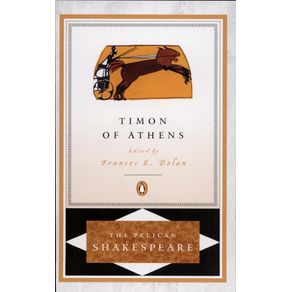Sinopse
A messy, uneven and disillusioned play, Timon of Athens is rarely studied or performed because of scepticism regarding both its authorship and completion. Like Pericles there seems little doubt that Shakespeare wrote the majority, but quite what he was trying to do is another matter. Timon of Athens is rich and generous, happy to provide his friends, servants and acquaintances with money whenever they require it. Only the cynical Apemantus questions the soundness of Timon's actions, and the motives of his supposed friends, wondering at "what a number of men eats Timon, and he sees 'em not. It grieves me to see so many dip their meat in one man's blood." When Timon's creditors ask for payment of their loans, Timon goes to his friends, but they all refuse to help him. Even worse, Timon's one loyal friend Alcibiades is exiled from Athens. After renouncing all his friends at one last banquet, Timon retires to a misanthropic life as a hermit in a cave. As he rails against "yellow, glittering precious gold", he completely renounces mankind, to die alone in his cave, his epitaph claiming that "Here lie I, Timon, who alive / All living men did hate". One of Shakespeare's more puzzling plays, Timon of Athens is unusually bleak and unforgiving, with Timon behaving like an unsympathetic version of Lear (they were both written within a couple of years of each other).
Ficha Técnica
Especificações
| ISBN | 9780140714876 |
|---|---|
| Pré venda | Não |
| Peso | 161g |
| Autor para link | SHAKESPEARE WILLIAM |
| Livro disponível - pronta entrega | Não |
| Dimensões | 23 x 16 x 1 |
| Tipo item | Livro Importado |
| Número de páginas | 144 |
| Número da edição | 1ª EDICAO - 2000 |
| Código Interno | 165336 |
| Código de barras | 9780140714876 |
| Acabamento | PAPERBACK |
| Autor | SHAKESPEARE, WILLIAM |
| Editora | PENGUIN USA |
| Sob encomenda | Não |

